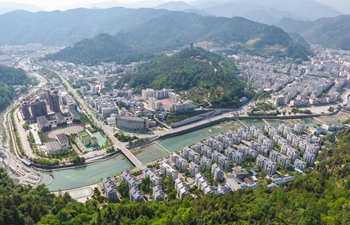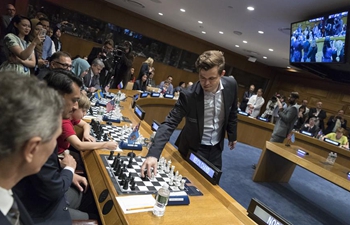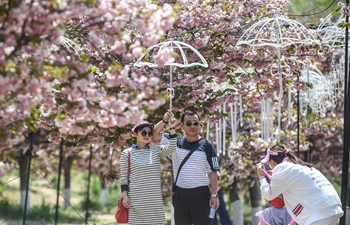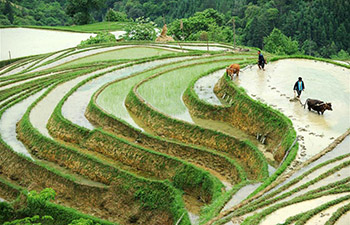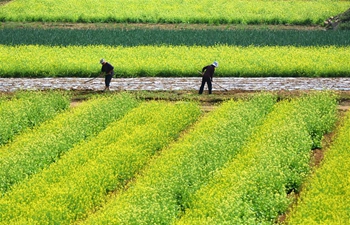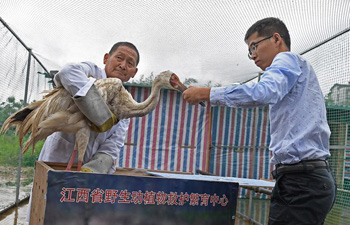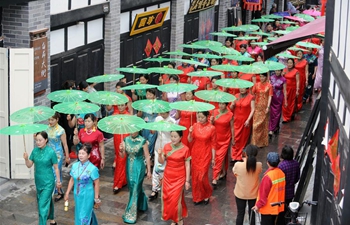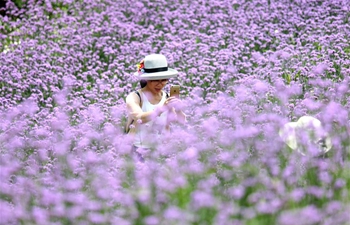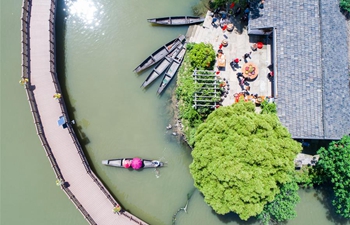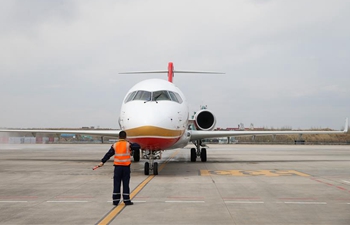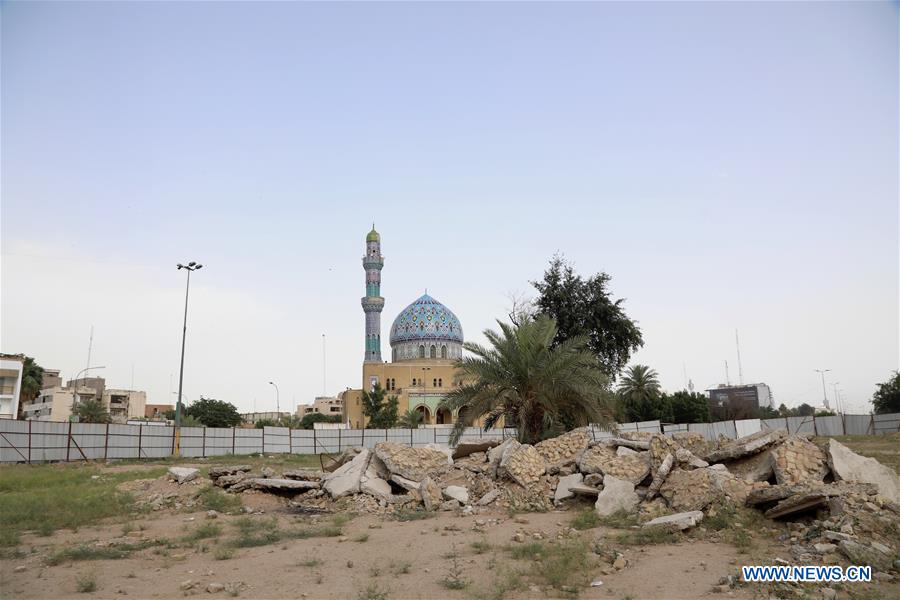
Photo taken on May 9, 2018 shows the Firdos Square in Baghdad, Iraq. Iraqis will head for parliamentary elections on May 12 to decide the future of their country, after years of chaos, violence and poor governance since the U.S.-led invasion in 2003. (Xinhua/Khalil Dawood)
BAGHDAD, May 11 (Xinhua) -- Iraqis will head for parliamentary elections on May 12 to decide the future of their country, after years of chaos, violence and poor governance since the U.S.-led invasion in 2003.
"We have seen a lot of wars, killings and sectarian violence, but today we want peaceful means to achieve our goals such as democracy," Amal al-Jubouri, a female lawyer and a human rights activist, told Xinhua.
The middle-aged activist called on Iraqis to trust the democracy as election is the only right path to change corrupt politicians.
"I don't think the change in the coming elected government will be enough for us. Still, it is a step toward a change," Jubouri said.
According to the Iraqi law, 25 percent of the 329 seats in the parliament must be allocated to female candidates.
Jubouri said the UN Assistance Mission for Iraq (UNAMI) is leading a campaign to support Iraqi women in participating in political affairs during and after the parliamentary polls on Saturday.
Iraq had been in fierce and bloody conflict with the Islamic State (IS) militant group, which took control of one-third of the country in June 2014 after the collapse of the Iraqi forces in face of its blitzkrieg aggression.
In December 2017, Iraqi Prime Haider al-Abadi announced the liberation of all Iraqi lands from IS control after the Iraqi forces, backed by an anti-IS international coalition, drove out the militants from all their strongholds.
Since then, the security situation in the country has dramatically improved. Many Iraqis have been looking forward to a comprehensive reform against endemic corruption and government incompetency.
Fadhel Eleiwi, 24, who has not found a job since he graduated from an agriculture college several years ago, is among the thousands of disappointed unemployed college graduates in Iraq.
"We want to change the miserable situation of our country, as the ruling parties failed to find solutions to the problems of Iraq. Perhaps, new faces could give us a new hope," Eleiwi said.
Earlier in the month, Iraq's top Shiite cleric Grand Ayatollah Ali al-Sistani warned Iraqis not to fall "into the traps of those who have failed (in leading the country) and corrupted people."
However, Iraq's firebrand Shiite cleric Moqtada al-Sadr called for the Iraqi people to actively participate in the elections to rid the country of corruption.
"If it is not voting by millions, there would be no positive results in the elections," Sadr said.
"If the turnout would be five percent, the political process will go on and the corrupt people will stay in their posts," he warned.
Active participation "would increase the portion of the good people. Then we can change the compass and stand against the plans of the corrupt people," the Shiite cleric explained.
Many Iraqis, however, doubt that the elections could bring any real change to their country, saying the candidates are just as corrupt as many of the outgoing lawmakers.
Mohammed, a student at the engineering college in Baghdad University, said he will not vote in the elections as there is no hope in the coming elections.
"Many of the candidates are the same faces, and even I see a new face I would swiftly discover that he is competing within a list led by corrupt old faces. Many of the new candidates must join old political parties and coalitions to guarantee their winning of seats," he lamented.
Shahad, a female college student at al-Nahrayn University in Baghdad who did not reveal her full name, expressed a similar opinion.
"Most of the candidates are coming for high salaries, allowances and other financial benefit. I believe most of them are corrupt people," she told Xinhua.
Kifah al-Sudani, a retired nurse in her 60s, urged a careful voting for the right candidate.
"People are looking forward to social justice, better housing, jobs, education and rebuilding the country's industry and agriculture. To make such dreams come true, voters must choose carefully and differentiate between the good and the bad," she said.
More than 24 million Iraqis are eligible to vote in the 4,148 polling centers across Iraq in the first general election since Iraq's historical victory over the IS militant group last December.
About 7,000 candidates, representing 205 political entities, will compete for the 329 parliamentary seats to form a new government which will rule Iraq for the next four years.
Iraq's previous general election was held on April 30, 2014, when the Iraqis elected 328 lawmakers for the parliament.




